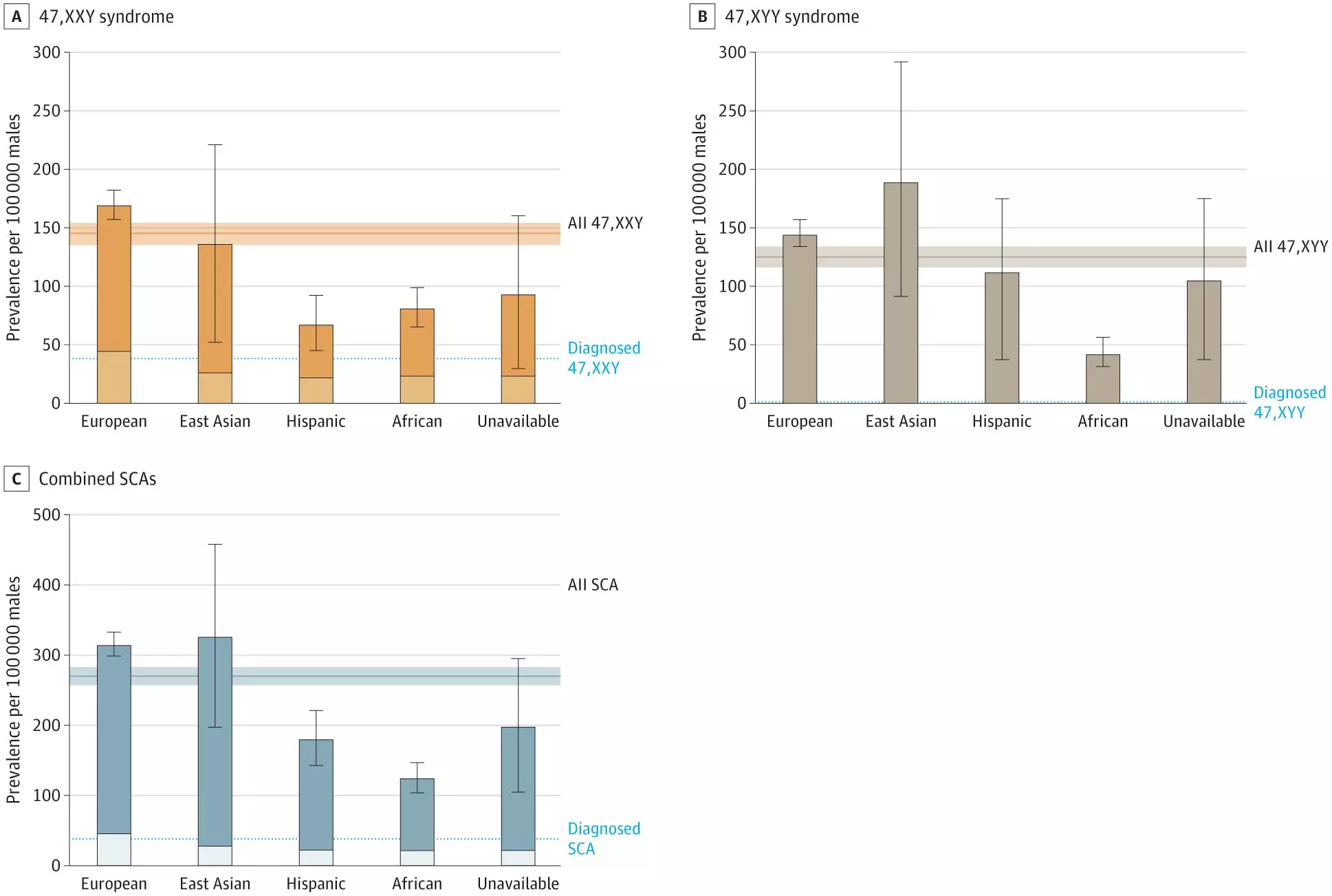The study conducted by researchers at the University of Colorado Anschutz Medical Campus sheds light on the prevalence of men with additional X or Y chromosomes in the United States. This comprehensive research, published in JAMA Network Open, has significant implications for the early diagnosis and treatment of conditions associated with these genetic variations. However, a critical analysis of the study reveals the shortcomings and the need for further investigation.
According to the study’s first author, Shanlee Davis, MD, Ph.D., approximately one in 400 males have an extra X or Y chromosome, yet the majority of these individuals remain undiagnosed. This lack of awareness highlights a crucial gap in the medical community’s understanding and recognition of these genetic conditions. While men with Klinefelter syndrome or Jacobs syndrome face increased risks of developmental delays, learning disabilities, and various health issues, the study emphasizes the urgent need for improved diagnostic practices.
The research, which involved nearly 600,000 veterans in the Million Veteran Program, aimed to provide a more comprehensive and diverse representation of men with extra X or Y chromosomes. Surprisingly, the study found that white and Asian veterans had a higher prevalence of these genetic variations compared to black and Hispanic veterans. This unexpected finding raises questions about the underlying factors contributing to the disparities in diagnosis and awareness among different ethnic groups.
Despite the increased awareness brought by this study, there are still significant gaps in understanding the long-term implications of having an extra X or Y chromosome. Many individuals with these genetic variations have lived for years without a proper diagnosis, leading to unidentified risks and potential health complications. As Dr. Davis points out, studying this aging population is crucial for identifying and addressing the unique challenges faced by men with Klinefelter syndrome or Jacobs syndrome.
Moving forward, further research is needed to explore the full spectrum of medical and psychiatric comorbidities associated with extra X and Y chromosomes. By expanding the scope of genetic analysis and including a more diverse study population, researchers can gain a deeper understanding of the impact of these genetic variations on overall health and well-being. Additionally, efforts to increase awareness and improve diagnostic practices are essential for providing timely interventions and support for individuals with these underrecognized conditions.
While the study on men with extra X or Y chromosomes represents a significant step towards understanding these genetic variations, there is still much more to learn. By critically examining the research findings and addressing the gaps in knowledge and awareness, the medical community can enhance the care and support available to individuals with Klinefelter syndrome, Jacobs syndrome, and other related conditions.

